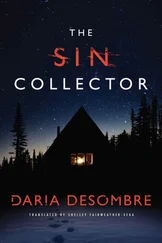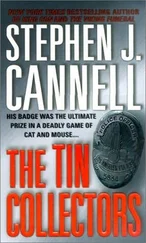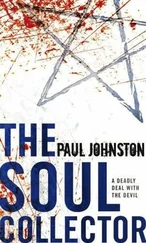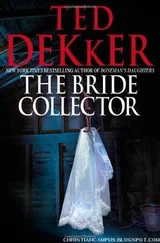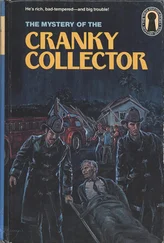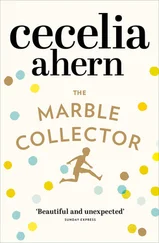Mel was Jewish, named for his grandfather Mendel. With his dark eyes, strong nose, and melancholy little mouth shaded by a moustache, he looked as Jewish as they come. But he was from the nonbelieving branch of the religion. Superstition scared him. In fact, superstition made him superstitious. These were strange times. The world seemed on the cusp of some revelation—or some disaster. The Y2K bug lurked inside the world’s computers like a worm eating the world tree. According to the CIA, terrorists were out to get everyone on New Year’s Eve. Even as Barbara began praying and nailing mezuzahs to door frames throughout the house, Mel felt that something terrible might befall him. Each mezuzah case was no larger than Mel’s index finger and concealed a scroll inside, so that no scripture was visible, except for one Hebrew letter, the shape of a three-tined fork. They were small, these mezuzahs, but they were everywhere, each like a chrysalis, a tiny portent. Lately he lived in dread. What would become of him? What new belief would open up its wings and flutter through the house today? Barbara had begun praying morning, noon, and night. Turning toward the east, she clutched her prayer book and mumbled words in Hebrew. And she wrote checks. Little checks. Nothing too crazy, but donations all the same, to the Zylberfenigs, those mystic Bialystokers of hers.
As he cleared and Barbara washed the Thanksgiving dishes, she said, “I’m sorry I snapped at Annie. I’m happy.”
“I know.” His voice was bleak.
“I’m thankful, actually, because we’re all together.”
He nodded, although he and Barbara were alone in the house. The kids had driven off to see their friends.
“We’re blessed,” said Barbara. She turned off the water in the sink and turned to face him. She was glowing again. Her cheeks were rosy, her eyes bright with the sky. She looked as though she’d just come in from walking on a perfect fall day. “Just think what we can do when we sell our stock.”
“Our stock? Who’s selling stock?”
“We could give,” said Barbara.
Suddenly, Mel knew the desire in Barbara’s infatuated heart. He took a full step back in shock. Donate stock! Mel had assumed that after twenty-eight years of marriage he and his wife had discovered every little quirk and source of irritation—but now this! An entirely new category, like a previously uncharted island or a new species in the rain forest. That was how her suggestion revealed itself to him, a new mammal, a giant three-toed rat, just when naturalists thought they’d seen it all.
“Oh, no. No. That’s not going to happen. If and when ISIS goes public—if and when I’m clear to sell my shares—there’s no way in hell I’m giving them to those Hasidic lunatics of yours.”
“Mel,” said Barbara, hurt by his language.
Anger swelled within him. “I am not giving a penny of my money to those holy rollers and their evangelical, superstitious, brainwashing cult. Over my dead body.”
“I never said anything!” Barbara protested.
“You don’t have to. I know. Don’t you think I know what they want out of you? And what you want to do?” And he did know, because after all, he had been married to Barbara half his life. He had met her at Brigham and Women’s Hospital where he had worked in payroll and she was just a sweet young nurse. He knew exactly how his wife looked when she hoped for something, or when she wanted something, or when she dreamed. He knew her yearning liquid eyes, her tender mouth. He could read her face, even as she became a stranger to him.
By Friday morning, Jess was so homesick for California that she begged Emily, “When Jonathan comes to pick you up, could you take me too?”
Emily looked guilty.
“I’m just kidding!” Jess assured her.
Waiting must have been torture, but Emily hardly let it show. She kept busy, playing Candy Land with the girls, and then helping Heidi sort through boxes in the guest room. Jess avoided these activities. Through the kitchen window, as she washed an apple, Jess saw someone in the garden next door. The rabbi again, in his black coat and hat.
“Dad,” she called her father.
“Hold on.” His voice was muffled through the door of his home office off the living room.
“He’s back.” Jess stood outside the door.
“Who?”
“The rabbi looking at the Weldon place.”
Now the door opened. “Where?”
They hurried to the window.
There he was. They could see the top half of Rabbi Zylberfenig over the hedge. He was gazing contemplatively at the winter ruins of an overgrown rhododendron, surely thinking something mystical about the dormancy and rebirth of plants.
Richard’s eyes narrowed. “He must be the nonprofit with the day-care scheme.”
“He didn’t seem like a psychopath or anything,” Jess ventured.
“Except that he’d like to convert every Jew in sight to flat earth ancestor worship,” Richard countered.
Jess couldn’t help giggling at that last.
“You think it’s funny,” Richard said.
“No,” she protested.
“These people are opportunists,” her father declared. “I know what they did in Sharon, and in Bethel. They infiltrate wherever they can, because you know what they want?”
“The Messiah?”
“Money.”
Oh, if Richard had known what Jess had done—borrowing from one of them. Fortunately, her father could not read her mind. “The sole purpose of these centers is to raise money to open more centers,” he explained. “These things are viral, as is the religion, which is a cult based on their rabbi, whom they worship.”
“Oh, come on, Dad, how do you know what they believe?” asked Jess.
“I know more than you think,” her father said.
“Let’s say they do worship their rabbi. Aren’t they allowed freedom of religion? Or are you like those people theoretically supporting battered-women’s shelters—everywhere but your backyard?”
“Don’t lecture me about freedom, young lady,” said Richard. “These people intend to come in, bringing traffic to a residential neighborhood. They are planning a religious school and propaganda center next to my home. Don’t tell me their beliefs are sacrosanct when their practices threaten to impact me and my family.”
Who was this irate man standing in the kitchen? Who was his family? Not Jess and Emily. He spoke of his new wife and kids, of course. They were young and sweet, but Richard had aged, and his doubts had hardened, along with his beliefs. Jess had asked him once, when she was about ten, whether he’d stopped believing in God when Gillian died.
“No, sweetie,” he’d replied. “I wouldn’t give up believing because of some event that happened to me. Terrible things happen every day. It would be illogical to give up hope in God because of one death in our family. No. I never believed in the first place. Not before, not after.”
At the time, Jess had found his answer comforting. Richard’s rationality had always reassured her. If she woke in the night, afraid of thunderstorms, he would sit on the edge of her bed and talk to her about probability and statistics, explaining the low odds that she’d get hit by lightning. She didn’t worry about crossing the street, did she? Well, she was far more likely to die that way. He’d also explained that the chances of dying in a plane crash were infinitesimally small, and that Newton enjoyed the lowest crime rate in Massachusetts. Highly unlikely, then, for armed robbers to break into their home at night. Now, however, Jess looked at her father and wondered where his anger came from, and why he sounded so obsessed with people he dismissed, and so threatened by a religion he denied. She herself vacillated when it came to belief. She did not particularly believe in God. Or, rather, she didn’t believe in a particular God. Nevertheless, she kept an open mind. She was not a melancholy agnostic, but the optimistic kind. She liked to give God the benefit of the doubt.
Читать дальше

